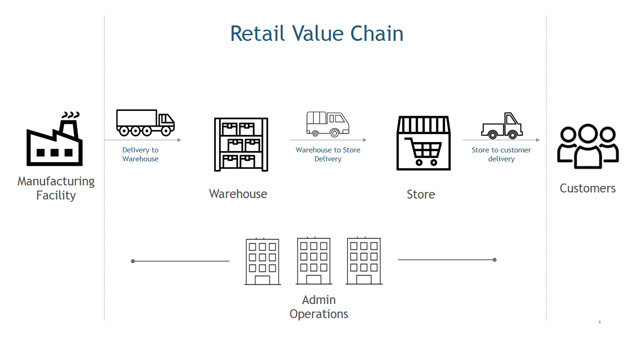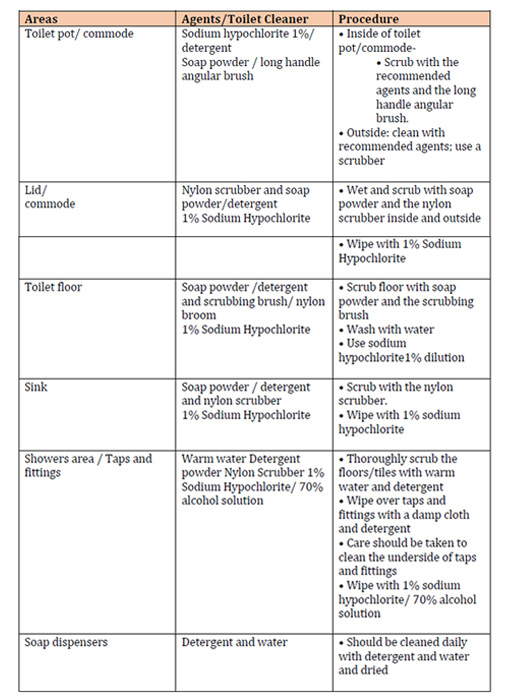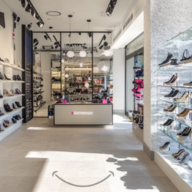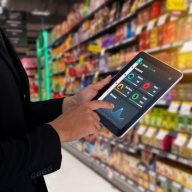Post Covid-19 lockdown - Getting your workplace ready

Retail
259 week ago — 17 min read
The COVID-19 has brought the entire world to its knees. It’s an unknown enemy that over 200 countries across the globe are trying to protect its citizens from. According to the World Health Organization (WHO), COVID-19 spreads when people touch their eyes and nose after coming in contact with an infected person or contaminated surfaces or objects. Objects get contaminated when droplets from an infected person fall on them through coughing, sneezing or exhalation. In other words, it spreads in a manner similar to that of flu.
While, most persons infected with COVID-19 experience mild symptoms and recover, some require serious care. Risk of serious illness rises with age and capacity of the immune system. The rapid spread of the pandemic has brought the world economy to a standstill.
Social distancing seems to be the only way to control the spread of this virus. A complete lockdown seems to be the only effective way to effect social distancing. India too has taken timely measures to contain the spread of the pandemic including imposing a lockdown.
Organisations that are prepared for the new reality with a complete SOP will reap the benefits. The days immediately after re-opening manufacturing units, warehouses, stores and corporate offices will be critical.
Even though the lockdown may get extended if the situation does not improve, organisations have to think about the time when businesses will reopen. This is because the impact of the pandemic will be felt long after the pandemic is gone. Moreover, experts believe that the pandemic and the lockdown will forever change the way businesses function and consumers behave. Business will have to function while continuing the focus on health and safety of all involved.
Also read: Post-lockdown: A 5-day plan to reopening your business
Organisations that are prepared for the new reality with a complete SOP will reap the benefits. The days immediately after re-opening manufacturing units, warehouses, stores and corporate offices post COVID-19 lockdown will be critical for all retail business units. They will have a difficult yet crucial task of ensuring safety and hygiene and instilling confidence in both internal and external customers in every possible way.
Retailers operate in a variety of functions across the value chain. A typical Retail Value Chain looks like this:

Manufacturing / Warehouse operations
Overall precautionary measures
- Provide Thermo-Guns and screen all personnel for fever and cold
- Provide masks to all employees (keep some masks in the spare in case an employee reports to work without a mask).
- Identify a room or area where someone who is feeling unwell or has symptoms can be safely isolated
- Create a Rapid Response Team of at least 2 managers who will monitor employees with infections / symptoms and will take necessary actions.
- Empanel a doctor/doctors for health checks
- Get signed self-declarations on health conditions by all personnel on a site
Social distancing measures
- Cancel all non-critical meetings, recreational activities, locker room access and mock drills
- Ensure that items required to be kept in lockers such as mobile phones should be sanitised before keeping them in and after they are retrieved
- Define maximum occupancy limit for all buildings and enclosed areas
- Increase employee transportation capacity and modes, ensure social distancing while transportation
- Cancel access of visitors to organisation’s facilities/premises
- Restrict loading / unloading activities to ensure minimal interaction between personnel
- Space out employee amenities with markings on queue managers
- Stagger shift timings to ensure shifts do not over-lap so that social distancing is maintained at the start/end of shifts
Communication measures
- Display approved signage across the facility mandating social distancing
- Display labour allocation information across multiple boards at prominent places across the building to avoid crowding
- Use Public Announcement (PA) systems for broadcasting messages reinforcing social distancing mandate
- Keep communicating and promoting the message that people need to stay at home even if they develop even mild symptoms of COVID-19
Sanitization measures
- Establish protocols and processes for sanitization
- Sanitize all surfaces that are frequently touched at least once every 4 hours
- Ensure availability of Masks, Gloves for individuals engaged in processes where social distancing is not possible
- Ensure smaller shifts to limit exposure
- Put sanitizing hand rub dispensers at prominent places around the workplace. Make sure the dispensers are regularly refilled
Delivery / Logistics operations
- Tie-up with delivery partners for contactless delivery
- Ensure that company’s delivery staff can visit the customer’s residence with the products and requisite sanitization materials (mask, gloves, glasses and sanitizers)
Measures for vendors
- Sanitize stocks when dispatched from warehouse and re-sanitize when accepted at store
- Screen all drivers (temperature check). Also ensure they wear masks and sanitize hands
- Making sure that drivers and loading-unloading staff have access to places where they can wash their hands with soap and water
Also read: 6 tips for working from home without losing your marbles or compromising security
Store operations
Overall precautionary measures
- Provide thermo-guns to screen all personnel for fever and Cold
- Get signed self-declarations on health conditions by all personnel on a site
- Identify a room or area where someone who is feeling unwell or has symptoms can be safely isolated
- Create a Rapid Response Team of at least 2 managers who will monitor employees with infections / symptoms and will take necessary actions
- Install no-touch trash bins, instruments such as sneeze guards / protective screens at checkouts/cash counters
- Plan store openings keeping COVID-19 hotspots and non-hotspot areas in mind
- Opening of stores in COVID-19 hotspots can be delayed. However, the stores in non-hotspots can open post lockdown
- Encourage employees to use their private vehicles while commuting to work. Consider providing fuel allowance Encourage quick shopping options like order on phone and pick from outside the store
Social distancing measures
- Make floor markings at the tills to ensure social distancing
- Set up prioritized shopping hours for instance one hour every Monday, Wednesday and Friday morning for vulnerable and elderly customers and frontline workers
- Manage stores with minimum number of staff with staggered days as footfall may not be high even after lifting of the lockdown
- Introduce disposable token system to avoid crowding at stores
- Define the maximum customer occupancy inside a store basis the size of the store to ensure a distance of 6 feet between customers and limit contact while queuing
Sanitization measures
- Install sanitization products, and preventive guideline posters at all entry and exit points
- Disinfect surfaces, including doorknobs, handrails, the POS system, tables and desks, front entrance, carts, registers and bathrooms with 1% sodium hypochlorite or phenolic disinfectants at regular intervals for the entire duration a store is open.
- Frequent sanitisation of store premises at regular intervals to be carried out. Disinfection frequency and sanitisation guidelines can be found in Annexure II
- Provide Bio-Degradable gloves, masks to staff
- Place sanitizing hand rub dispensers at prominent places around the workplace Make sure these dispensers are regularly refilled
- Ensure physical distancing by keeping a distance of at least 6 feet between employees
- Mandate the staff using public transport to sanitize themselves before entering the store
- Encourage customers to use cleaning stations to wipe trolleys, basket, etc.
- Ensure that items required to be kept in lockers such as mobile phones should be sanitised before keeping them in and after they are retrieved
Display, Merchandizing and Sampling
Food & Grocery
- Pre-pack loose commodities to avoid contamination
- Limit number of employees handling food items
- Ensure close surveillance of employees handling food items for possible infections
- Ensure all employees sanitize themselves before handling food items o Ensure adequate staffing in all sections especially those selling loose products and Fruits & Vegetables o Ensure employees assist customers in packing and picking the products
Non-Food
- Ensure trial rooms are disinfected with spray, pre and post each customer trial to build customer confidence and for staff safety
- Request customers to wait for 5 minutes to iron clothes, wherever possible, with availability of steam iron before packing, so that the product is free of contaminants
- Ensure no customer or staff touches merchandise without proper sanitization
- Encourage customers to only touch what they intend to purchase
- Set up a process wherein tried garments are kept in dedicated trial rooms. Next morning, the garments from the previous day are to be steamed and put back on display
- Set up a process wherein hangers are retrieved and kept in a separate carton marked ‘TO BE SANITIZED’ in the trial room aisle area. These hangers to be sanitized before reuse
- Ensure trial room tokens are sanitized after every use
- Restrict the number of items that can be exchanged / returned for online orders. Furthermore, set up proper procedure so that returns are thoroughly sanitized
Customer Sales
Billing & payment process
- Encourage contactless payment options such as Paytm, Google Pay, UPI o Mandate cashiers to extend a tray to receive or return currency / cards for payments
- Ensure plenty of cash tills and mobile checkouts to reduce billing time
- Adopt measures to sanitize cash before it gets accepted
- Ensure cashiers wear gloves while dispensing cash
- Replace physical bills with softcopy to be sent to customers via email / SMS o Allow customers to exit the store if there is no beep. Do away with bill punching / checking of carry bags post purchase o Direct customers to collect sanitised shopping bags from bag holder
Billing & other staff
- Make it mandatory for shop staff to wear face masks. Dispense with handshakes, use a non-contact method for greetings
- Make it compulsory for employees to wash their hands when they arrive and every time they enter the premises, as well as frequently throughout the day
Also read: Work from home: How to handle it?
Admin / Centralized operations
Overall precautionary measures
- Provide thermo-guns to screen all personnel for fever and Cold
- Get signed self-declarations on health conditions by all personnel on a site
- Identify a room or area where someone who is feeling unwell or has symptoms can be safely isolated
- Create a Rapid Response Team of at least 2 managers who will monitor employees with infections / symptoms and will take necessary actions
- Conduct daily fever checks—Every individual to be checked for the body temperature through infrared thermometers without fail
- Make sanitizers available at all entry and exit points
- Defer joining of employees traveling using public transports such as train/bus/taxis/auto in the initial stages. Instruct employees commuting by their own vehicles to avoid using drivers
Social distancing norms
- Define maximum occupancy for all buildings and enclosed areas
- Restrict gathering in groups; avoid any kind of meeting of more than 2-3 persons at a time
- Mandate employees to have lunch at their own work stations; no employee to be allowed to wash their lunch box in the wash basin
- Limit number of employees using washrooms at the same time to 2 people, forbid queuing at the entrance
- Sanitary workers must use separate set of cleaning equipment for toilets (mops, nylon scrubber) and separate set for sink and commode). They should always wear disposable protective gloves while cleaning a toilet.

- 70% Alcohol solution can be used to wipe down surfaces where the use of bleach is not suitable, e.g. metal. (Chloroxylenol (4.5-5.5%)/ Benzalkonium Chloride or any other disinfectants found to be effective against coronavirus may be used as per manufacturer’s instructions)
- Always use freshly prepared 1% sodium hypochlorite.
- Do not use disinfectants spray on potentially highly contaminated areas (such as toilet bowl or surrounding surfaces) as it may create splashes which can further spread the virus.
- To prevent cross contamination, discard cleaning material made of cloth (mop and wiping cloth) in appropriate bags after cleaning and disinfecting. Wear new pair of gloves and fasten the bag.
- Disinfect all cleaning equipment after use and before using in other area
- Disinfect buckets by soaking in bleach solution or rinse in hot water
Employee working cadence
- Cancel all non-critical meetings, recreational activities and corporate events
- Encourage remote working for as long as possible (Functions and Roles that can work effectively from home should be continued to Work From Home)
- Conduct virtual meetings using online apps/platforms (Skype, Zoom, Webex)
- Ensure that not more than 50% staff works from office
- Stagger shifts as much as possible to avoid over-lap
- In a meeting/conference/office room, if someone is coughing, without following respiratory etiquettes or mask, the areas around his/her seat should be vacated and cleaned with 1% sodium hypochlorite.
Employee communication
- Put up signs and posters around the workplace to remind workers and others of the risks of COVID-19 and measures necessary to stop its spread
- Encourage employees to wash their hands with soap for 20 seconds before and after using wash rooms
- Provide all employees with training on preventing transmission of COVID-19, including initial and routine/refresher training
- Ensure frequent communication using WhatsApp and other communication tools
- Display posters promoting respiratory hygiene. Combine this with other communication measures such as guidance from occupational health and safety officers, briefing at meetings and information on intranet
Workplace sanitization
- Ensure availability of face masks for employees coming to office
- Sanitizers to be placed in all departments in addition to reception desk
- Disinfect entire office twice a week, carry out fumigation of workplace on daily basis for first 14 days
- Disinfect frequently touched areas like reception, delivery areas and surfaces such as hand rails, door handle, push plates, telephone equipment, key boards, photocopy machines and other office equipment, toilet flush and seats at regular intervals
Cafeteria
- Conduct daily temperature screening of all cafeteria staff when they enter and exit the building
- Train office boys, kitchen helpers and canteen managers to ensure high-degree of personal hygiene and strict cleanliness
- Mandate cafeteria staff to sanitize themselves on a continuous basis and wear mask and gloves while preparing and serving food
- Introduce healthy menus for employees such as immunity-enhancing diet to build their immune system. Avoid serving any raw food such as salads
- Restrict the number of employees entering the cafeteria at one point of time to prevent gathering
Travel
- Suspend all non-essential travel and exercise strict caution in making travel plans to any region
- Put a blanket ban on all business travel unless approved by top management
- Avoid inviting vendors/contractors/customers from high risk locations /affected countries to office locations
Also read: Coronavirus: What to do when employees can’t work from home
Image source: shutterstock.com
To explore business opportunities, link with me by clicking on the 'Invite' button on my eBiz Card.
Disclaimer: The views and opinions expressed in this article are those of the author and do not necessarily reflect the views, official policy or position of GlobalLinker.
Network with SMEs mentioned in this article
View STOrai 's profile
Other articles written by STOrai Magazine
The Art & Science of People Pleasing in Retail
17 week ago
Most read this week














Comments (1)
Share this content
Please login or Register to join the discussion